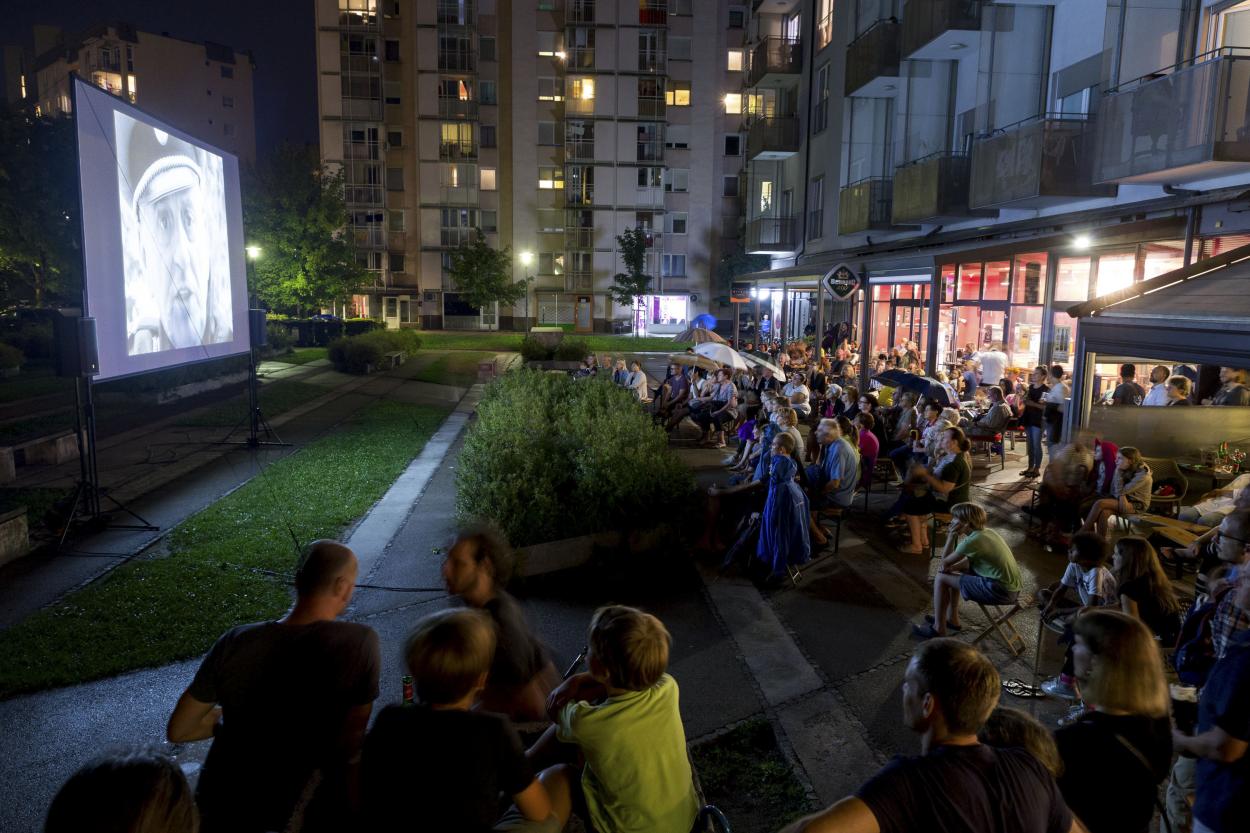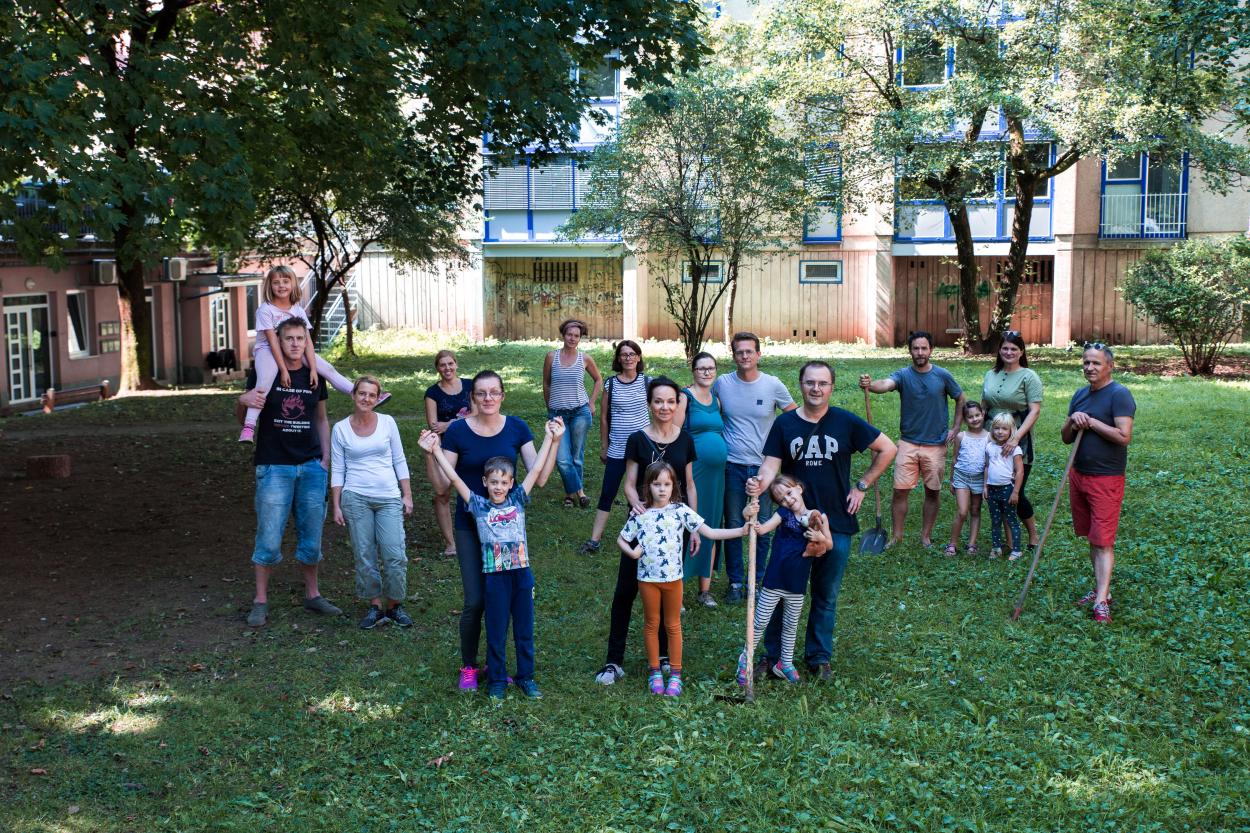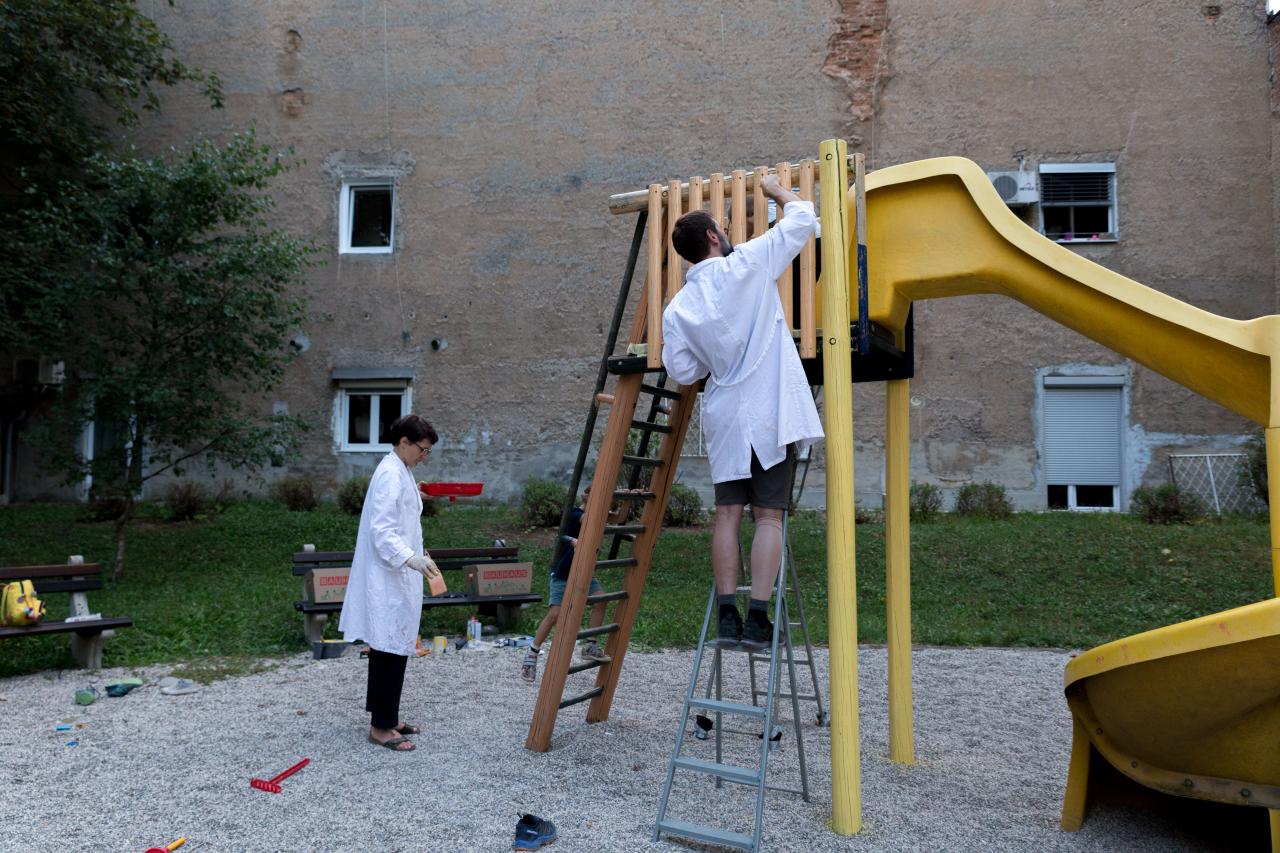In mid-September, city representatives from Albania, Bosnia and Herzegovina, Montenegro, North Macedonia and Serbia gathered in Ljubljana for a two-day capacity building event as part of the URBACT Pioneers Accelerator programme. Part of the event included guided study visits, designed to immerse participants in the city’s participatory urban practices. At the heart of the visit was the initiative called Zunaj (“Outdoors”). Launched in 2019 by Prostorož – A non- profit urban design studio and IPoP – Institute for Spatial Policies, and supported by the City of Ljubljana, Zunaj was inspired by international initiatives such as Vienna’s Grätzl Oase and Seattle’s Neighbourhood Matching Fund. It was carefully adapted to Ljubljana’s post-socialist urban context.
From pump track to pop-up cinema: big impact for a small cost
Since 2019, communities around Ljubljana are invited each year to submit proposals for small-scale urban interventions. Around ten projects are selected based on clear criteria, receiving €500–800 in material support along with consultation on project implementation. The community leads the project, contributing voluntary labour and ensuring local ownership. The first call alone attracted over 60 applications, far exceeding expectations for a first-of-its-kind initiative in Slovenia.
The projects supported by Zunaj are diverse. Some create new infrastructure, such as a dirt pump track or refurbished basketball court. Others focus on improving existing spaces, including repainting underpasses, upgrading bus stops, or adding benches in neglected parks. Pop-up cultural events, such as outdoor cinema screenings and neighborhood picnics, also bring residents together and foster a sense of community. The initiative is structured along the same lines each year: calls are usually launched in spring, with implementation during the summer and early autumn. NGOs act as intermediaries between residents and municipal departments, coordinating with departments of environmental protection, public utilities and traffic, PR department and borough offices to facilitate smooth delivery.
Zunaj has demonstrated that supporting citizen-led placemaking can in fact improve physical spaces. By involving residents directly, the mechanism strengthens social infrastructure, builds trust and relationships within communities, and equips citizens with knowledge and experience in collaborating with local authorities. For the municipality, the financial investment is modest — around €20,000–30,000 annually for 10–15 projects — yet the impact on urban vitality, public engagement, and positive visibility is significant. Many communities continue to maintain their projects after completion, while the city gains insight into areas where larger-scale interventions may be needed.

Rebuilding broken ties on Friendship Street
One of the most emblematic actions comes from Prijateljeva Street. The neighbours, most of them owners of small flats in a socialist-era apartment block, went through a stressful and divisive process when it came to agreeing how to fund and renovate the building’s façade. The process created disputes and damaged relationships among residents.
To restore trust and improve their shared environment, the residents applied to Zunaj to revitalise the open space around their building. Their aim was simple yet symbolic: to become friends again on a street whose name quite literally means Friendship Street. With the support they received, they repaired benches, improved greenery, and organised a large, free picnic, bringing long-time residents and newcomers together around the same table.
This case illustrates how small-scale interventions can go beyond physical improvement: they can heal social relations and encourage residents to take shared responsibility for their environment. It also shows that cities can intervene even in semi-private open spaces, which are particularly common in post-socialist cities. The outcome is stronger collaboration between residents and the municipality, and a better, more welcoming space for everyone.

A participatory mechanism, replicable in the Western Balkans
Despite its success, implementing community-led placemaking requires careful collaboration. Mutual trust between city administrations and civic actors is essential, as is municipal responsiveness. Legal or ownership complications can delay projects, and financial support alone is not enough without committed local leadership. Long-term maintenance remains a topic for discussion, as well as the responsibility of the city to provide clearer frameworks and financial backing to ensure sustainability of the tripartite collaboration.
Considering that the main objective of the URBACT Pioneers Accelerator are small scale pilot projects to be implemented in respective cities, the Ljubljana study visit offered URBACT Pioneers a practical example of how small, supported community actions can produce meaningful transformations in public space while strengthening civic engagement. With some Slovenian municipalities, including Kočevje and Maribor, already adopting similar approaches, Zunaj demonstrates that mechanisms of this kind can be replicated successfully in other urban contexts. For cities across the Western Balkans, the model offers both inspiration and a framework for engaging residents directly, enabling communities to take an active role in shaping the spaces they share.
By Aidan Cerar (IPoP – Institute for Spatial Policies) and Zala Velkavrh (Prostorož)


